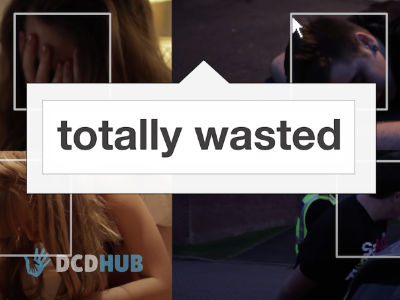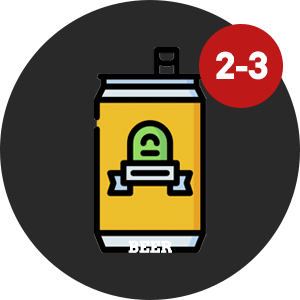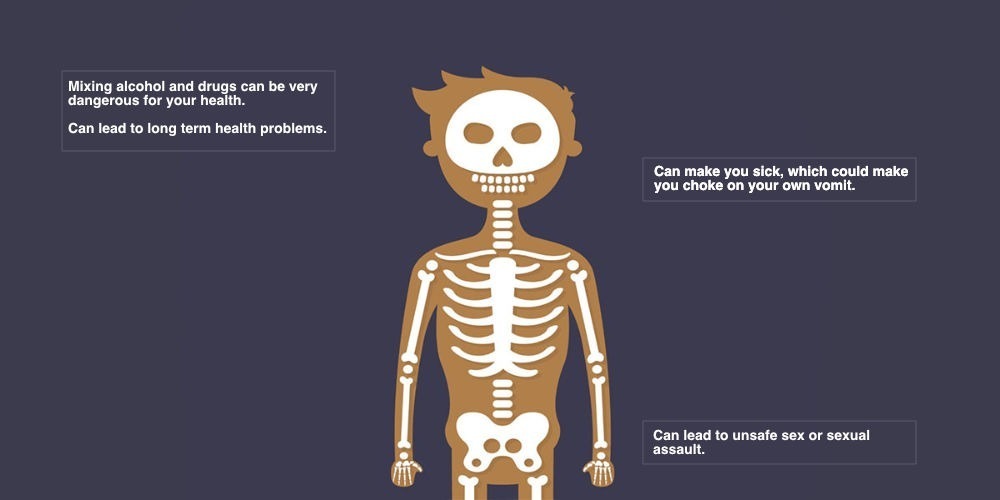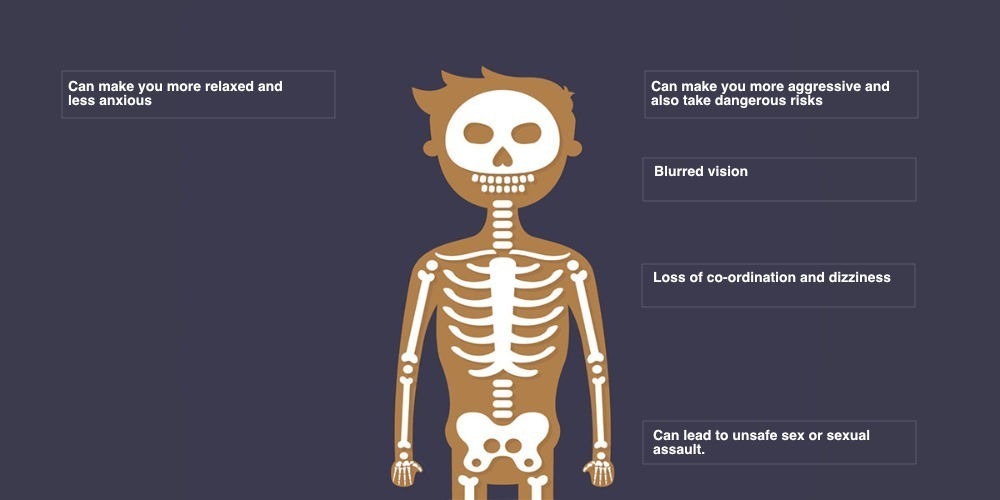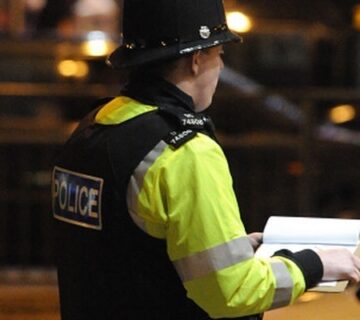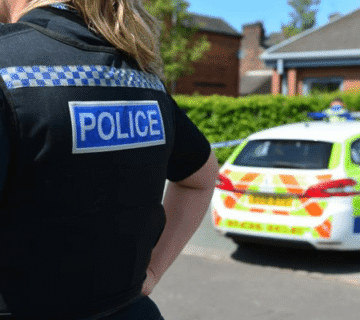Tranquilisers
Xanax, Vallies, Rugby Balls, Roofies, Rohypnol, Norries, Moggies, Mazzies, Jellies, Eggs, Downers, Blues, Benzos, Benzodiazepines, Valium, Diazepam
Tranquillisers can induce periods of calmness, relaxation and sleep, and are used to treat anxiety and insomnia. In medicine, tranquillisers are used to treat anxiety and insomnia. In the club scene, tranquillisers are often used as chill-out drugs, and to help people sleep after taking stimulants. Some people use them to help come down off acid, cocaine, speed or ecstasy. Using tranquillisers can be risky, and especially dangerous if you mix them with other depressant drugs like heroin or alcohol.
Xanax
Xanax is an anti-anxiety medication. It can make you feel sleepy, relaxed and tired quite quickly, it is 20 times stronger than valium.
Xanax is very addictive and you can become physically dependant on it. There has been an increase in young people going to hospital due to taking Xanax.
Xanax can cause blackouts and put you at risk of sexual assault and other crimes.
The Law
Tranquillisers are controlled under Class C of the Misuse of Drugs Act. Unauthorised possession (i.e. without a prescription) could result in a prison sentence of up to 2 years and an unlimited fine.
Supplying, which includes giving some to your friends, could mean up to 14 years in prison and an unlimited fine.
A conviction for a drug-related offence could have a pretty serious impact. It can stop you visiting certain countries – for example the United States – and limit the types of jobs you can apply for.
Poppers
TNT, Thrust, Rock Hard, Ram, Liquid Gold, Kix, Amyls
Poppers are not controlled under the Misuse of Drugs Act 1971, but amyl nitrite is regulated under the Medicines Act 1968 and there have been cases where the Medicines Act was used to fine shops for selling poppers. Poppers are also covered by general consumer protection legislation.
Possession is not illegal but supply can be an offence.
Poppers are not covered by the Psychoactive Substances Act 2016.
The Law
Poppers are not controlled under the Misuse of Drugs Act 1971, but amyl nitrite is regulated under the Medicines Act 1968 and there have been cases where the Medicines Act was used to fine shops for selling poppers. Poppers are also covered by general consumer protection legislation.
Possession is not illegal but supply can be an offence.
Poppers are not covered by the Psychoactive Substances Act 2016.
New Psychoactive Substance
NPS, MDAT, Eric 3, Dimethocaine, Bath Salts, Legal Highs
New psychoactive substances – often incorrectly called legal highs – contain one or more chemical substances which produce similar effects to illegal drugs (like cocaine, cannabis and ecstasy).
The main effects of almost all psychoactive drugs, can be described using four main categories, stimulants,‘downers’ or sedatives, psychedelics or hallucinogens and synthetic cannabinoids.
The Law
Although some of these so-called ‘legal highs’ were legal in the past, since the Psychoactive Substances Act came into effect on 26 May 2016, none of these drugs are legal to produce, supply or import (even for personal use, e.g. over the internet) for human consumption.
This includes selling them or giving them away for free (even to friends) when they are going to be taken to get high.
The ‘legal highs’ that were made illegal as class A, B or C drugs under the Misuse of Drugs Act, are still covered by that legislation. All other psychoactive substances not currently covered by the Misuse of Drugs Act will fall under the Psychoactive Substances Act.
LSD
Window, Trips, Tab, Stars, Smiles, Rainbows, Paper Mushrooms, Micro Dot, Lucy, Liquid Acid, Lightning Flash, L, Hawk, Flash, Drop, Dots, Cheer, Blotter, Acid
LSD stands for its chemical name, Lysergic Acid Diethylamide, and is commonly called ‘acid’. It’s a powerful hallucinogenic drug – this means that users are likely to experience a distorted view of objects and reality, including seeing and sometimes hearing things that aren’t there (these are hallucinations). The experience of taking lsd is known as a ‘trip’.
Time and movement can appear to speed up and slow down. Colour, sound and objects can get distorted and you can experience double vision.
These distortions of your senses can be quite unpredictable, sometimes pleasant, but sometimes very frightening (these are called ‘bad trips’).
The Law
LSD Is A Class A Drug, So It’s Illegal To Have For Yourself, Give Away Or Sell. Possession Is Illegal And Can Get You Up To Seven Years In Jail And/Or An Unlimited Fine.
Supplying someone else, even your friends, can get you up to life imprisonment and/or an unlimited fine.
If the Police catch you with LSD, they’ll always take some action. This could include a formal caution, arrest and prosecution.
A conviction for a drug-related offence could have a pretty serious impact. It can stop you visiting certain countries – for example the United States – and limit the types of jobs you can apply for.
Ketamine
Vitamin K, Super K, Special K, K, Green, Donkey Dust
Ketamine is a powerful general anaesthetic which stops you feeling pain and it’s used for operations on humans and animals.
The effects don’t last long, but until they wear off, ketamine can cause a loss of feeling in the body and paralysis of the muscles. It can also lead to you experiencing a distortion of reality.
The Law
Ketamine is a Class B drug – it’s illegal to have for yourself, give away or sell. Possession is illegal whatever you’re using it for, including pain relief.
Supplying your mates, even if you give it away, is also considered ‘supplying’ under the law.
If the Police catch you with Ketamine you could be arrested, have a formal caution, a penalty notice and a possible conviction.
A conviction for a drug-related offence could have a pretty serious impact. It can stop you visiting certain countries – for example the United States – and limit the types of jobs you can apply for.
Mephedrone
White Magic, Miaow, Meph, Meow Meow, MC, M-Smack, M-Cat, Charge, Bubble, Bounce, 4-MMC
Mephedrone is a powerful stimulant. The main effects and risks of mephedrone include euphoria, alertness and feelings of affection towards the people around you, but you can also have feelings of anxiety and paranoia.
Mephedrone, or meow meow, can also overstimulate your heart and circulation; and can overstimulate your nervous system, with risk of fits.
The Law
Mephadrone is a Class B drug – it’s illegal to have for yourself, give away or sell. Possession is illegal whatever you’re using it for, including pain relief.
Supplying your mates, even if you give it away, is also considered ‘supplying’ under the law.
If the Police catch you with Mephadrone you could be arrested, have a formal caution, a penalty notice and a possible conviction.
A conviction for a drug-related offence could have a pretty serious impact. It can stop you visiting certain countries – for example the United States – and limit the types of jobs you can apply for.
Heroin
Smack, Skag, Horse, H, Gear, Brown
Heroin is a drug made from morphine. A small dose gives the user a feeling of warmth and well-being, bigger doses can make you sleepy and very relaxed, but the first dose of heroin can bring about dizziness and vomiting.
‘Street’ heroin sold as ‘brown’ is sometimes now used by clubbers as a chill out drug after a big night out.
Heroin is highly addictive and people can quickly get hooked.
The Law
Heroin is a class A drug, so it’s illegal to have for yourself, give away or sell. Possession is illegal and can get you up to seven years in jail and/or an unlimited fine.
Supplying someone else, even your friends, can get you up to life imprisonment and/or an unlimited fine.
If the Police catch you with heroin, they’ll always take some action. This could include a formal caution, arrest and prosecution.
A conviction for a drug-related offence could have a pretty serious impact. It can stop you visiting certain countries – for example the United States – and limit the types of jobs you can apply for.
Ecstasy
XTC, Superman, Rolexs, Pink Superman, Pills, Mitsubishi’s, MDMA, Mandy, E, Dolphins, Crystal, Cowies, Brownies
Ecstasy (Also known by it’s Chemical Name, MDMA) gives an energy buzz that makes people feel alert, alive, in tune with their surroundings, and with sounds and colours often experienced as more intense.
Clubbers take ecstasy to feel energised and happy.
Users often develop temporary feelings of love and affection for the people they’re with and for the strangers around them.
The effects take about half an hour to kick in and tend to last between 3 to 6 hours, followed by a gradual comedown.
The Law
Ecstasy is a class A drug, so it’s illegal to have for yourself, give away or sell. Possession is illegal and can get you up to seven years in jail and/or an unlimited fine.
Supplying someone else, even your friends, can get you up to life imprisonment and/or an unlimited fine.
If the Police catch you with Ecstasy, they’ll always take some action. This could include a formal caution, arrest and prosecution.
A conviction for a drug-related offence could have a pretty serious impact. It can stop you visiting certain countries – for example the United States – and limit the types of jobs you can apply for.
Cocaine
White, Wash, Toot, Stones, Snow, Rocks, Percy, Pebbles, Freebase, Crack, Coke, Chiang, Charlie, Chang
‘Coke’ Is A White Powder. ‘Crack’ Is A Form Of Cocaine Made Into Small Lumps Or Rocks That Makes A Cracking Noise When Burnt.
Taking cocaine makes users feel on top of the world, wide-awake, confident and on top of their game – but some people are over-confident on it and so may take very careless risks. The effects of crack smoking are virtually immediate, peaking for about two minutes and lasting for only about 10 minutes.
When the effects of any cocaine use start to wear off there can be a very strong temptation to take more.
The Law
‘Coke’, ‘freebase’ and ‘crack’ are all Class A drugs – that means they’re illegal to have, give away or sell.Possession can get you up to seven years in jail, but supplying someone else, including your friends, can get you life and an unlimited fine.
If the Police catch you with cocaine, they’ll always take some action. This could include a formal caution, arrest and prosecution.
Cannabis
Weed, Skunk, Sense, Puff, Marijuana, Hash, Grass, Dope, Bhang
Cannabis is a naturally occurring drug which can make you feel very chilled out, happy and relaxed. A big myth about cannabis is that it’s safe because it’s natural. Cannabis has some very real effects on your mood, as well as creating longer-term problems.
It’s the most widely-used illegal drug in Britain, although the numbers of people using it are falling. Cannabis is naturally occurring – it is made from the cannabis plant.
The Law
Cannabis is a Class B drug – it’s illegal to have for yourself, give away or sell. Possession is illegal whatever you’re using it for, including pain relief.
Supplying your mates, even if you give it away, is also considered ‘supplying’ under the law.
If the Police catch you with cannabis you could be arrested, have a formal caution, a penalty notice and a possible conviction.
A conviction for a drug-related offence could have a pretty serious impact. It can stop you visiting certain countries – for example the United States – and limit the types of jobs you can apply for.
Cigarettes
Cigarettes contain Nicotine, which is highly addictive. Nicotine alters the balance of two chemicals, called Dopamine and Noradrenaline, in your brain. When nicotine changes the levels of these chemicals, your mood and concentration levels change. Many smokers find this enjoyable.
The changes happen very quickly. When you inhale the nicotine, it immediately rushes to your brain, where it produces feelings of pleasure and reduces stress and anxiety. This is why many smokers enjoy the nicotine rush and become dependent on it.
Most people start smoking when they are in their teens and are addicted by the time they reach adulthood.
Smoking can cause many long-term health problems.
E-Cigarettes
- E-cigarettes produce a vapour, that contains nicotine.
- Unlike normal cigarettes, you can use E-cigarettes in places where smoking is not allowed.
- The ingredients of E-cigarettes are often unknown.
- The long term health effects are unknown, but there are a number of deaths that have been linked to E-cigarettes
The Law
- It’s against the law to sell cigarettes, tobacco or tobacco products to under 18s.
- All large shops and supermarkets in England now need to cover up cigarettes and hide tobacco products from public view.
- Smoking in public is against the law. This does not include E cigarettes.
Alcohol
Alcohol is the most popular social drug for many people. It helps us relax, can make us more comfortable in difficult social situations and can help us forget about tough problems in our lives.
Excessive alcohol use can lead to problems, such as losing control and also to long term health problems.
Alcohol Units
Alcohol units vary between drinks, meaning you could drink a small shot of spirits or a large bottle of beer and the amount of alcohol in them may be the same, in fact there could be more in the small shot.
Each unit is an amount of alcohol and the more you have, the more drunk you will become. This will initially affect your mood, but long term excessive drinking will impact your health.
14 is the recommended number of units per person per week.
The Law
If you’re 16 or under, you may be able to go to a pub (or premises primarily used to sell alcohol) if you’re accompanied by an adult. However, this isn’t always the case. It can also depend on:
- the specific conditions for that premises
- the licensable activities taking place there
If you’re under 18, it is against the law:
- for someone to sell you alcohol
- to buy or try to buy alcohol
- for an adult to buy or try to buy alcohol for you
- to drink alcohol in licensed premises (eg a pub or restaurant)
However if you’re 16 or 17 and accompanied by an adult, you can drink (but not buy) beer, wine or cider with a meal.
If you’re under 18 and drinking alcohol in public, you can be stopped, fined or arrested by police.
It’s illegal to give alcohol to children under 5.
Classroom Resources
Cover the statutory Health Education requirements with our drug and alcohol lesson packs
Category: Drugs, County Lines
Audience: KS1, KS2, KS3, KS4, KS5
Developed by: PSHE Association
Duration (minutes): 30+
Keywords: drugs, county lines, alcohol
The PSHE Association drug and alcohol schemes of work for key stages 1-4 have been developed for Public Health England. This pack includes lesson plans and resources for each key stage — with knowledge organisers included — as well as a comprehensive teacher guidance document, a briefing on the evidence base underpinning effective drug and alcohol education, and governors’ briefing. Interactive PowerPoint lesson plans are also available, for members of the Association.
Support pupils with SEND to explore the facts, laws, risks and consequences associated with drug and alcohol use, as well as the dangers of household products and prescribed medications.
Category: Drugs, County Lines
Audience: SEND
Developed by: PSHE Association
Duration (minutes): <60
Keywords:
These lesson plans and slides are designed to be used flexibly, and can be adapted to meet the needs and abilities of your pupils. Each lesson provides several main activities for you to choose from, which are based on the progression stages outlined in our Planning Framework for Pupils with SEND.
The lesson plans from the Home Office are designed to prevent young people becoming involved in serious and organised crime.
Category: Crime and ASB, Drugs, County Lines
Audience: KS3
Developed by: PSHE Association
Duration (minutes): 2×60
Keywords:
The Year 7 lesson will help students recognise unsafe or coercive friendships. The Year 9 lesson explores the impact of serious and organised crime directly, including the example of young people involved in drugs supply with a focus on county lines (transporting drugs across counties).
KS3 form time activities
Category: Drugs
Audience: KS3
Developed by: NHS
Duration (minutes): -30 mins
Keywords:
In these 3 form time sessions, students learn about social pressures around vaping, its impact, and the effects of nicotine on the adolescent brain.
Consequences of vaping and challenging the influences that might encourage young people to vape
Category: Drugs
Audience: KS3
Developed by: PSHE Association
Duration (minutes): 60
Keywords: vaping, consequences, harm
A year 9 lesson exploring the consequences of vaping and challenging the influences that might encourage young people to vape. Designed to follow on from the Year 9 lessons in our existing suite of drug and alcohol education lessons, this lesson will help students understand the impact of influences, influencers and marketing on vaping-related choices and behaviours, explain the consequences of vaping, including the environmental cost of e-cigarettes, analyse ways to challenge influences and misconceptions about vaping











